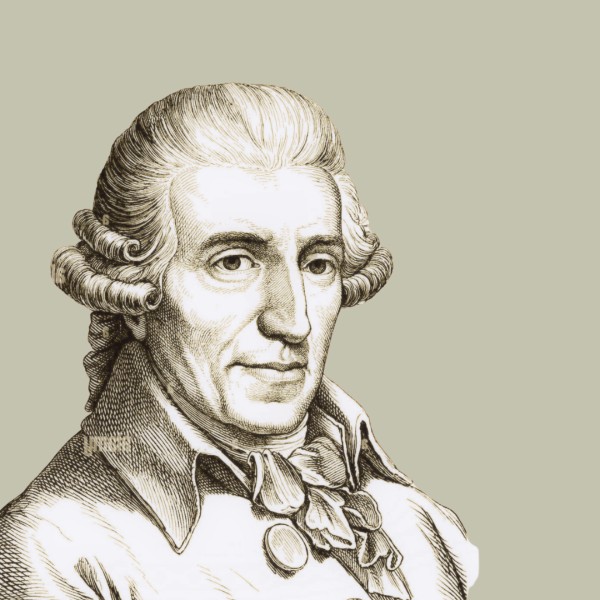
© Shutterstock
With the coronavirus spreading across the world, we’ve had to dramatically change our daily lives. Closure of bars, restaurants, gyms, and theaters will slow the spread of the virus, but many of the primary avenues for meeting and engaging with people have been closed for now. And let’s face it, we all need a bit of intimacy and tender loving care as a known and proven source of stress relief. Virtual intimacy might work for a while, but there is really no substitute for actual human interaction. Maybe you and your significant other are quarantined together, so it’s high time for a second date or honeymoon. We’ve compiled some music to get you in the mood for romance, starting with some uncharacteristically tender Beethoven.
Pianists have always been able to get us in the mood for love. And Chopin’s matchless genius in the realm of keyboard music transports us into a world of poetic expressions of emotional longing. His is not merely a world of gloomy introspection or sickly sentimentalism, but a veil of dream-like quality associated with femininity and rooted in Polish nationalism. In Chopin’s hands, every composition tells a story or conjures a particular feeling. And when the movement is inscribed “Romanza,” all thoughts turn to love.
Fryderyk Chopin: Piano Concert No. 1, Op. 11 – II. Romanza: Larghetto (Daniil Trifonov, piano; Polish Chamber Philharmonic Orchestra; Wojciech Rajsky, cond.)
Camille Saint-Saëns was the greatest organist in the world. But he was also a composer, pianist, conductor, expert on ancient music, playwright, poet, philosopher, caricaturist, mathematician, botanist, astronomer and archaeologist. There seemingly wasn’t anything he could not accomplish. Berlioz wrote, “he knows everything, but lacks inexperience.” Not so fast, because he really could never get a handle on his relationships with women. Whatever the reasons for his relationship trouble, it never prevented him from musically encoding thoughts of love and deep longing.
Camille Saint-Saëns: Romance in F Major, Op. 36 (Gabriel Schwabe, cello; Malmö Symphony Orchestra; Marc Soustrot, cond.)

© www.freepik.com
The love story between Robert and Clara Schumann is much better than any story Jane Austen or William Shakespeare ever came up with. In the world of literature’s most gut-wrenching love stories, the unhappy couples seem to inevitably die together. But Clara Schumann spent the better part of her life—besides raising their six children—performing and publishing the works of her late husband. The reason why we know Robert Schumann’s name today, is because of Clara’s love for him.
Clara Schumann: Romance variée in C Major, Op. 3 (Caroline Fischer, piano)
The world of opera and musical theatre is filled with tender duets of love. And for me personally, nobody wrote better ones than Giuseppe Verdi. His genius lifted this traditional ingredient for Italian opera beyond the circumstances of its creation. Particularly in his later works, he developed a great continuity of drama through music, and the famous and smoldering duet from Otello is sure to get you in the mood for some tender loving.
Giuseppe Verdi: Otello, Act I: Gia nella notte densa – Venga la morte (Kiri Te Kanawa, soprano; Luciano Pavarotti, tenor; Chicago Symphony Orchestra; Georg Solti, cond.)
Composers who try to hide their true feelings have written some of the most smoldering love songs. And Johannes Brahms must be the poster child for that type of composer. Intensely private about his personal life and unwilling to commit to a steady relationship, Brahms poured his passions into music. For his 3rd Piano Quartet, Brahms found inspiration in Goethe’s novel The Sorrows of Young Werther, a story about unrequited love.
Johannes Brahms: Piano Quartet No. 3 in C Minor, Op. 60 – III. Andante (Isaac Stern, violin; Jaime Laredo, viola; Yo-Yo Ma, cello; Emanuel Ax, piano)
Wolfie Mozart was not a child of sadness, as he possessed a great sense of humor with a weakness for crude jokes. He was open and honest, and enjoyed life to the fullest. He fell in love frequently and with great abandon, and that included an infatuation with his cousin Maria Thekla Mozart, his beloved “bunny cousin.” But he really had a thing for the Weber girls; first it was Aloysia Weber and subsequently Constanze Weber, the woman he would eventually marry. Courtship, happiness and love are part of Mozart’s musical narrative, and when he entitles a movement “Romance,” he really means it.
Wolfgang Amadeus Mozart: Piano Concerto No. 20, K.466 – II. Romance (Peter Lang, piano; Capella Istropolitana; Christoph Eberle, cond.)
Max Bruch’s delightful Romance for viola and orchestra sounds great lyrical passion. The opening tender melody gradually expands to attain sweet passion. The orchestra at times objects to this song of love, but in the end a sense of love and tenderness prevails. As one commentator puts it, “the viola has accepted the darkness of love, and can return to sweetness and passion without fear.” Love, passion and compassion are universal and everlasting, and they will overcome this silly virus as well. Please stay healthy in body and spirit.
Max Bruch: Romanze in F Major, Op. 85 (Maxim Rysanov, viola; Swedish Chamber Orchestra; Muhai Tang, cond.)

